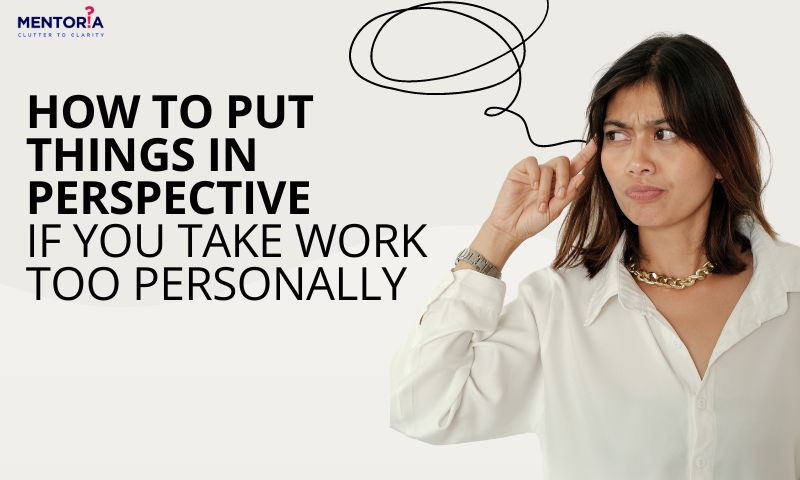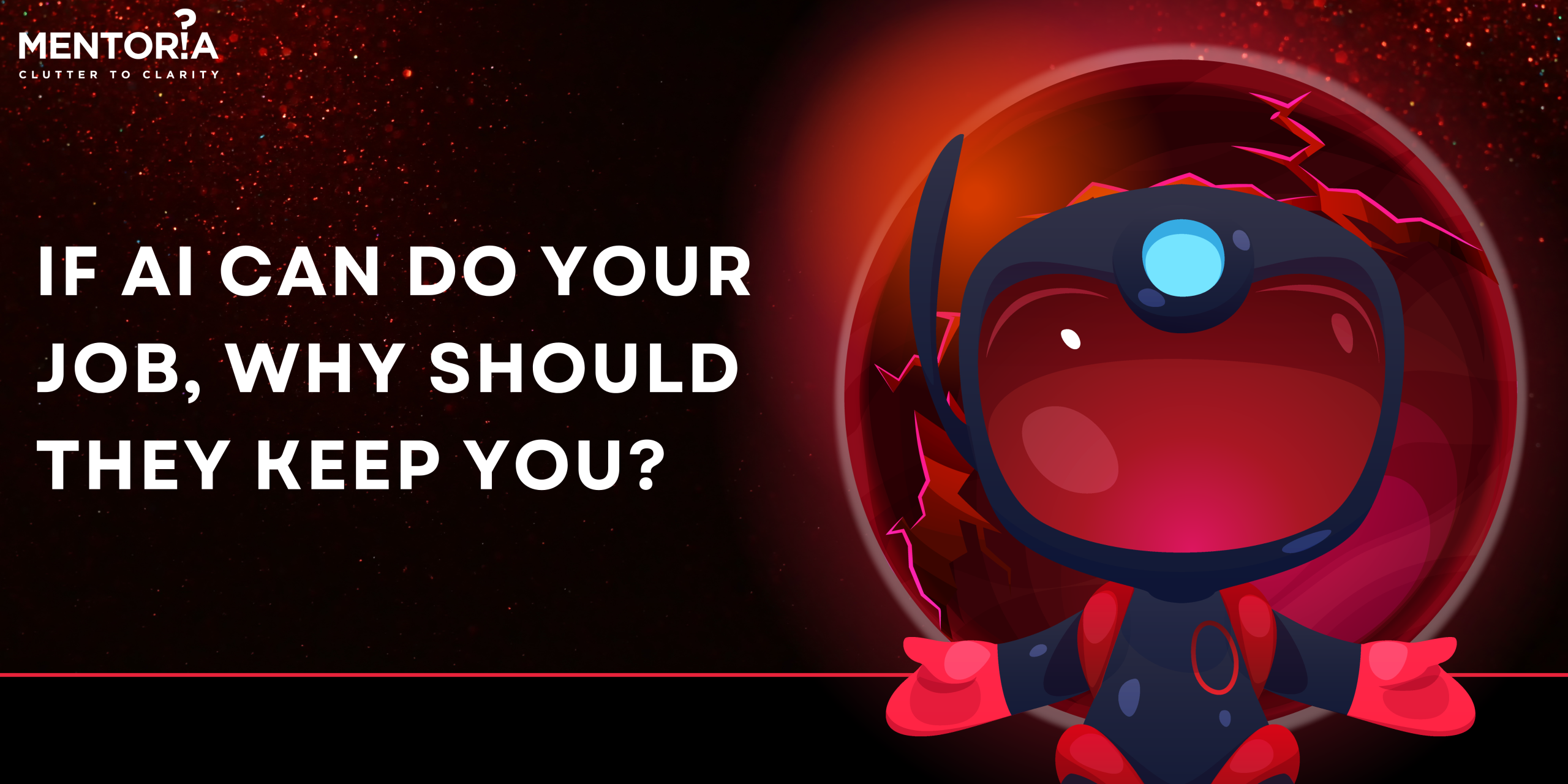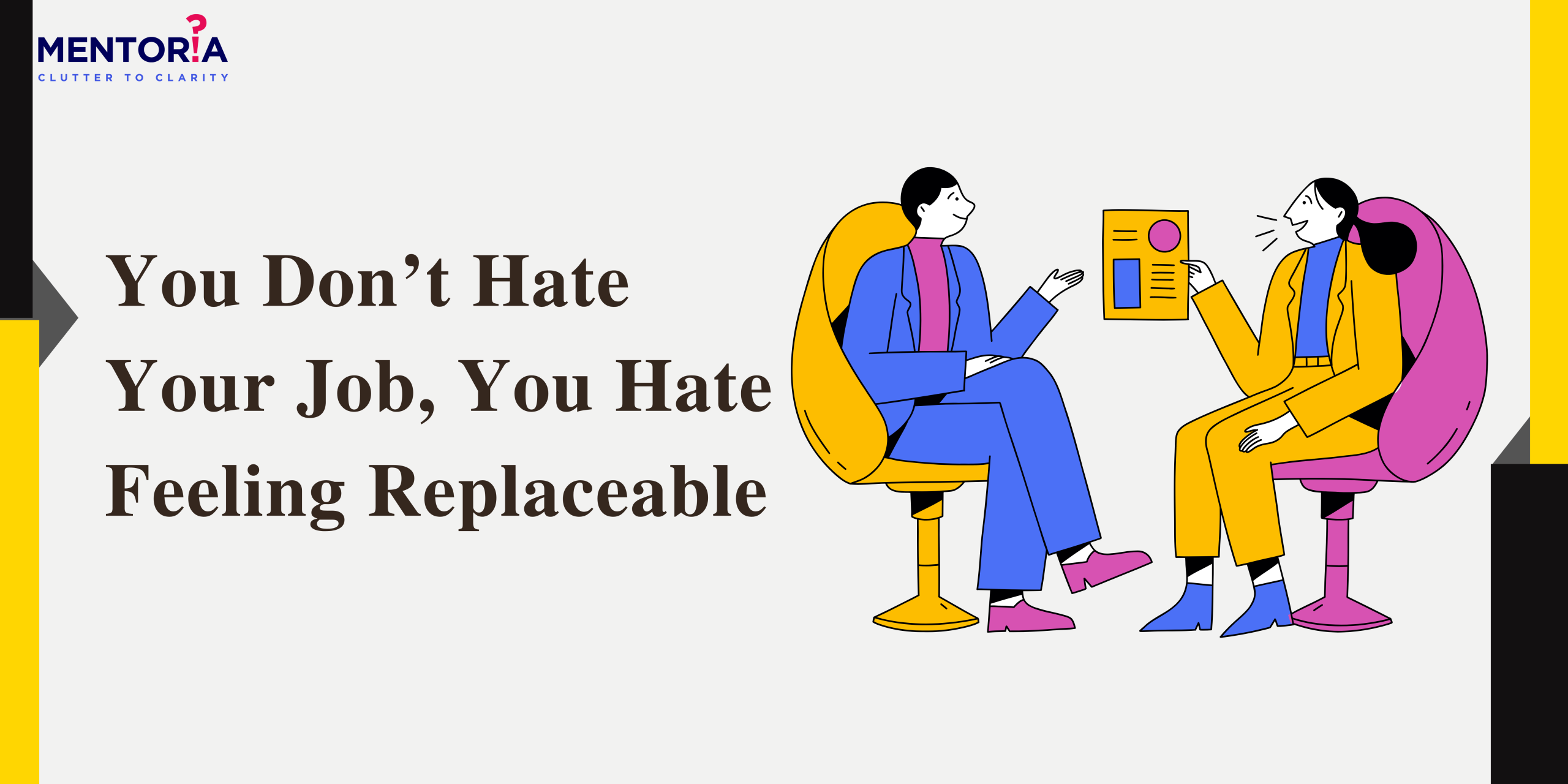How To Put Things In Perspective If You Take Work Too Personally

In the hustle and bustle of our professional lives, it’s easy to let work seep into our very sense of self. For those of us who are ‘sensitive strivers,’ every office interaction, decision, or bit of feedback can feel like a make-or-break moment. There are a lot of people who find themselves wondering why work takes such a personal toll. If this resonates with you, fret not, you’re not alone. In this blog, we’ll explore how to ride the wave of emotions, interrupt internalisation, build immunity to fears, find meaning in failure, and even have a chuckle when things get rough.
How To Balance If You’ve Been Taking Work Too Personally?
Surfing Your Emotions
Taking things personally can turn the workplace into an emotional rollercoaster, where every loop and twist feels like a direct hit. But, riding this emotional wave is about finding your balance. When a situation triggers intense emotions, recognise that it’s natural. Your brain perceives a threat, activating the amygdala, and it’s okay to feel hurt, defensive, anxious, or angry. The key is not to let these emotions dictate your actions.
Practice de-identifying from your feelings. Acknowledge the emotion without letting it define you. Say to yourself, “I am observing this feeling, but I am not this feeling.” This simple step engages your prefrontal cortex, the decision-making part of your brain. It creates a crucial space between the triggering event and your response. It’s like catching a breath before the next big wave, allowing you to act constructively instead of being swept away by emotions.
Halt The Negative Spiral: Hit Pause Before You Plunge
In the fast-paced world of work, negative spirals can pull you down rapidly. Before you find yourself spiralling into self-doubt, hit the pause button. Ask yourself a critical question: What assumptions am I making about this person’s behaviour or the situation? This simple act interrupts the internalisation process, encouraging you to look at things objectively.
Challenge yourself to consider alternative explanations. If a colleague seems dismissive, instead of assuming they don’t value your input, brainstorm other possibilities. Maybe they had a challenging morning or perhaps they didn’t fully grasp the topic at hand. This shift in perspective prevents you from making hasty conclusions about your own capabilities. Instead of stewing in your emotions, seek clarification. Ask questions in a non-confrontational way to better understand their intentions.
Getting Comfortable With Discomfort: Small Doses Of Fear-Be-Gone
Building immunity to fears involves exposing yourself to discomfort in controlled doses. It’s a process called desensitisation. Instead of shying away from situations, actively select them. Consider it a superhero training of sorts. Every time you take a risk and experience an unpleasant emotion, you expand your capacity to tolerate discomfort.
Choose situations where you can stretch your boundaries. Volunteer for low-stakes opportunities to practise a new skill, raise your hand to offer an idea before it’s fully developed, or actively seek out feedback. This process of self-selection is empowering, building not only your immunity to fears but also your self-trust. As you take chances and stretch yourself, you shift from viewing yourself as weak or fragile to believing you have what it takes to rise to the occasion.
Finding Meaning In Failure: Failing Forward
Failure is an inevitable part of any professional journey. Projects may not unfold as planned, proposals might get rejected, and clients might express dissatisfaction. However, rather than internalising these setbacks as personal failures, it’s essential to extract meaning from them. Embrace a more mature approach that allows you to navigate the unpredictable nature of work without letting it define your sense of self.
Shift your focus from asking, “Why is this happening to me?” to more constructive inquiries. Ask, “What can be done?” to shift to a problem-solving mindset grounded in agency and action. Inquire, “What am I meant to learn from this?” to extract wisdom from your experiences. Pose the question, “How is this situation for me instead of against me?” to explore how a situation could improve your adaptability and resilience.
Diffusing The Tension: LOLing At Workplace Drama
When faced with someone else’s bad behaviour, it’s easy to internalise it as a reflection of your own faults. However, most of the time, a person’s reaction is about their emotional immaturity, not something you said or did. Finding humour or evoking pity in these situations can be a game-changer. Rather than taking their actions personally, view it with empathy.
Think of the other person as emotionally immature or hear their mean comments in a silly voice. These mental tricks help shift your perspective from personalising their actions to understanding the situation with empathy. Remember, taking things personally isn’t a sign of weakness but a reflection of your passion, commitment, and deep sense of responsibility. By approaching situations with more objectivity, you can navigate your professional journey with greater clarity, balance, and effectiveness.
Finding Your Balance Amidst The Chaos
Taking things personally isn’t a sign of weakness; it’s a testament to your passion and commitment. By approaching situations with objectivity, you can navigate your professional journey with clarity and effectiveness. So, in the whirlwind of work, don’t forget to find your balance and keep the personalisation pitfall at bay.
Ready to find your equilibrium in the professional whirlwind? Mentoria is your companion in this journey. Our workshops and mentorship programmes help you navigate the intricacies of work-life balance. Connect with our career mentors to discover the right path for you. Kick-start your journey with Mentoria, offering 3 streams, 850+ courses, and 12,000+ careers. Because when it comes to personal growth, Mentoria has your back.









